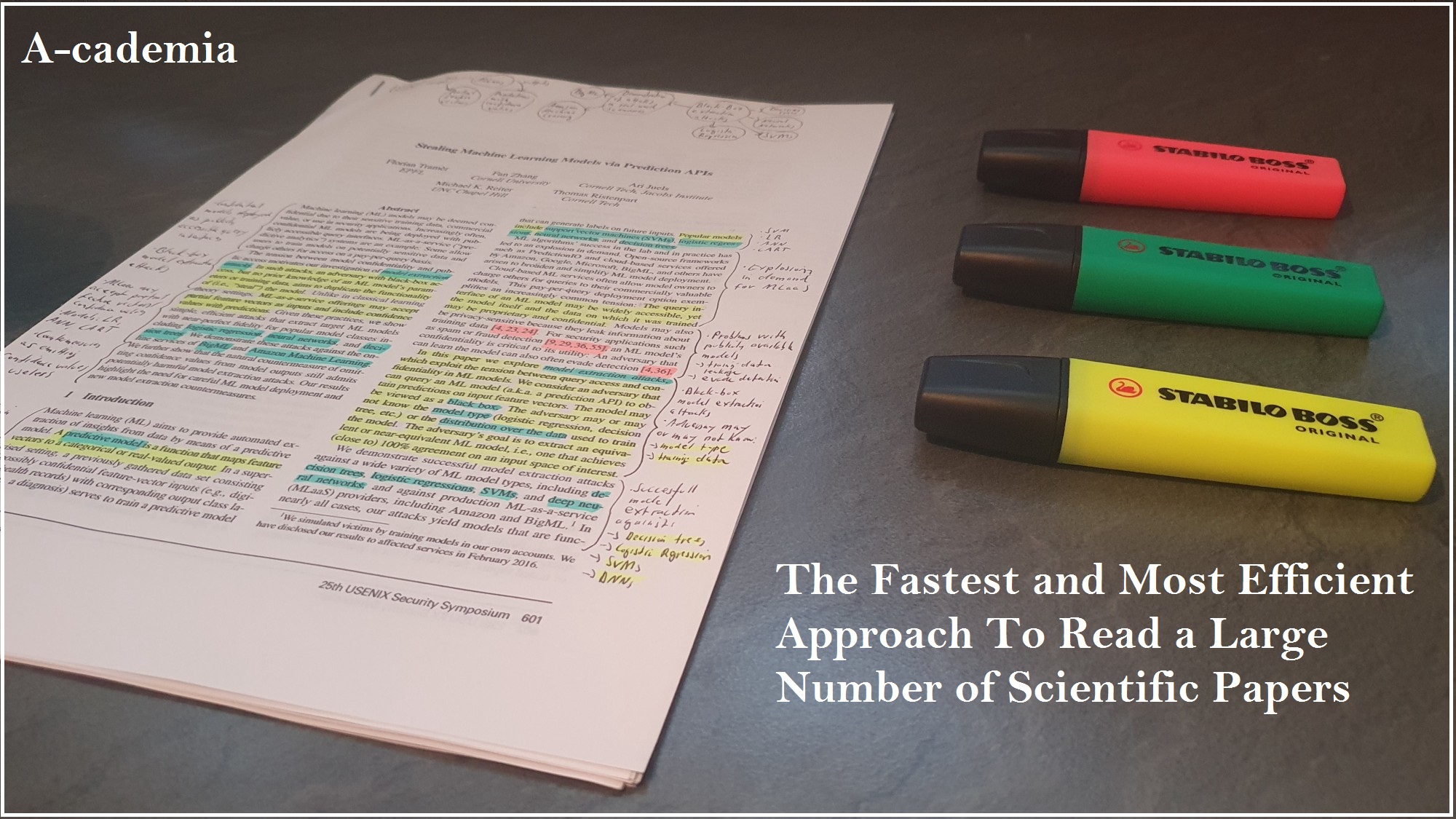The Fastest and Most Efficient Approach To Read a Large Number of Scientific Papers
Note1: All of this is made possible by having access to a university library (for me). They get access to the entire scientific literature through a user-friendly search engine. If you are a university student, I recommend that you take advantage of this opportunity and begin reading about the things that interest you.
Because of all the hardship required in subscribing to journals, getting paper PDFs, illegally downloading papers, or really buying them, I couldn't accomplish this nearly as quickly if it weren't for the university library system...
Note2: The downloading feature is very new, and it's fantastic. Check out the 'Sci-Hub' website.
If you don't have access to the most recent scientific literature through your academic institution or are concerned about 'illegal' downloads, Google Scholar is a good place to start.
How to fast and efficiently read a scientific article
1. Read the abstract briefly.
You can obtain a better understanding of the topic by skimming the abstract first. It's not required to look through the technique, data, or most of the other material in the abstract at this time. What you should read here is the purpose of the study, as well as why they felt the need to do this research in the first place, so you can decide whether or not further reading is worthwhile.
Hundreds of millions of scientific papers exist. Don't bother trying to read them all because you don't have the time, motivation, brainpower, or ability to do so. Whatever issue you're interested in, it's likely to have a lot of study surrounding it, and if it doesn't, it will shortly. Science is like that.
2. Read the final paragraph.
The paper's conclusion is usually the last paragraph of the discussion, and it describes what has recently occurred in greater depth than the opening.
The conclusion is necessary to grasp what the authors accomplished and why they did it at a high level. If the conclusion isn't relevant to your scientific research, you might choose to go on to another study at this time (see step 5).
3. Read the results after the conclusion.
The conclusion will explain what the results indicate, so read it first. Otherwise, the results will likely be meaningless to you in the near future.
4. Read the Methods section .
If you're certain that the results and conclusion are relevant to your research question, read the methods section to learn more about how the results were discovered.
If you are not a scientist, much of this technique will be useless to you, but reading it will provide you an overview of the types of study that are being conducted (eg; a group of lab rats were fed gluten-free yogurt while another group was fed yogurt containing gluten).
If you're a scientist, you'll dig much further into the study process, and as a scientist, you'll probably want to reproduce their procedures or find flaws in them so you can do things differently. Science is like that.
5. Repeat the process with a different piece of paper.
There will be a number (typically a large number) of reference papers at the bottom of your article.
To Read : How To Read an Academic Paper
Because science is heavily based on references, a study with no references is probably not a scientific work...
After you've found the references that are relevant to your query, repeat the procedure.
If you have access to a scientific publication, reading it should be a short procedure.
Understand that the majority of the papers you'll come across will have nothing to do with you or your specific query, so you'll want to get through them quickly or you'll waste a lot (a lot) of time reading things that are interesting but irrelevant - this can be fun, but it can also be tedious if you're trying to learn about something specific on a tight deadline. You'll have time to sift over the pertinent papers later if you rush through them.






Post A Comment:
0 comments: